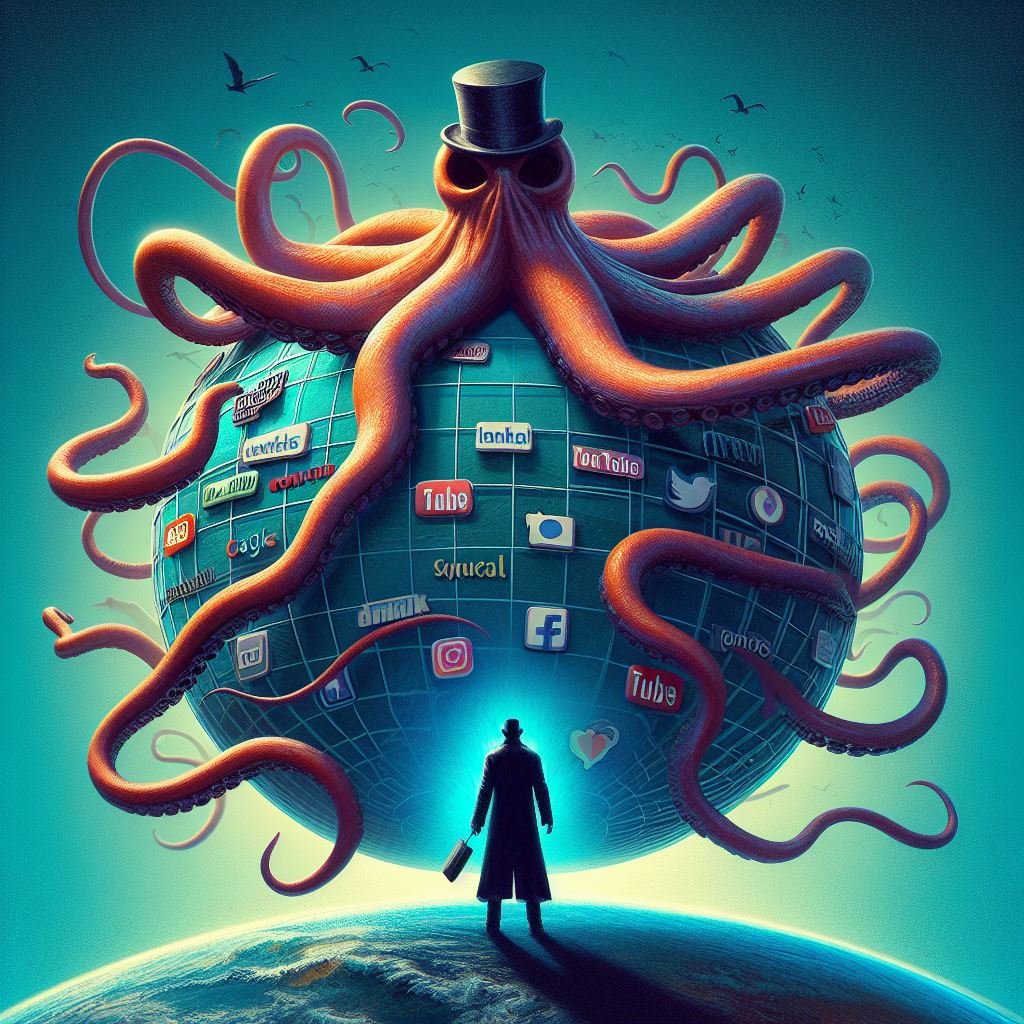The internet, once hailed as a revolutionary tool for democratizing information and empowering individuals, now stands accused of fostering the very opposite: a knowledge monopoly. This article delves into the heart of this debate, exploring the potential for the internet to both empower and constrain access to knowledge, and ultimately, the future of knowledge in the digital age.
The Dawn of a New Era: Openness and Accessibility
The early internet was characterized by a spirit of openness and decentralization. Information flowed freely, unhindered by gatekeepers or censorship. Anyone with a connection could access and share knowledge, creating a vibrant and diverse online landscape. This open access to knowledge fueled innovation and empowered individuals, particularly those who had previously been marginalized or excluded from traditional knowledge repositories.
The Rise of Gatekeepers: The Consolidation of Knowledge
However, as the internet evolved, so did its power dynamics. The rise of large corporations and powerful tech giants led to the consolidation of information and control over online resources. These entities, driven by profit and market dominance, began to exert significant influence over the information landscape. Search engines, social media platforms, and online content providers became the new gatekeepers of knowledge, determining what information was readily accessible and shaping public discourse.
Algorithmic Bias and Echo Chambers: The Manipulation of Knowledge
The algorithms that power our online experiences further exacerbate the issue. These algorithms, designed to personalize and optimize user experience, often lead to the creation of echo chambers. Individuals are presented with information that reinforces their existing beliefs and biases, while dissenting voices are marginalized or silenced. This can lead to a distorted understanding of the world and hinder critical thinking and informed decision-making.
The Dark Side of the Digital Divide: The Exclusion of the Disconnected
Furthermore, the digital divide, the gap between those who have access to technology and those who do not, remains a critical issue. This divide prevents millions from accessing and participating in the online knowledge economy, perpetuating existing inequalities and further consolidating the knowledge monopoly in the hands of the privileged few.
Fighting for a Future of Open Knowledge: The Power of Individuals and Communities
Despite these challenges, the internet still holds immense potential for democratizing knowledge. This potential can be realized through collective action, including:
- Supporting open access initiatives and alternative platforms: Open access journals, repositories, and platforms like Wikipedia provide valuable resources that are free from commercial interests.
- Building digital literacy skills: Equipping individuals with the skills to critically evaluate information and navigate the online world is essential for combatting misinformation and manipulation.
- Promoting digital inclusion: Bridging the digital divide through infrastructure development and digital literacy programs is crucial for ensuring equitable access to knowledge.
- Empowering individuals and communities: Supporting initiatives that enable marginalized voices to be heard and contribute their unique knowledge and perspectives.
The Future of Knowledge in the Digital Age: A Balancing Act
The internet's potential for both knowledge monopolies and democratization is undeniable. The future of knowledge in the digital age will depend on our collective ability to harness its power for good, ensuring that it serves as a tool for empowerment and not a means for control and exclusion. We must strive to create a digital world where knowledge is accessible to all, where diverse voices are heard, and where critical thinking and informed decision-making thrive. This future requires vigilance, action, and a commitment to building a just and equitable information society.
Conclusion
The internet is a double-edged sword when it comes to knowledge. It can be both an instrument of liberation and a tool for domination. It is up to us, the users, the creators, and the policymakers, to determine whether the internet will usher in a new era of knowledge democracy or become the foundation for a knowledge monopoly. The choices we make today will determine the future of knowledge in the digital age.
- #InfoMonopoly
- #WebDominance
- #DigitalDominion
- #OnlineOligarchy
- #KnowledgeControl
- #InfoGatekeepers
- #DataMonopoly
- #NetNeutralityDebate
- #WebInequality
- #TechTitans
- #OnlineHegemony
- #CyberDominance
- #InformationMonopoly
- #DigitalEmpire
- #WebPowerPlay
- #TechOligopoly
- #KnowledgeHierarchy
- #DataControl
- #WebManipulation
- #InfoGatekeeping

